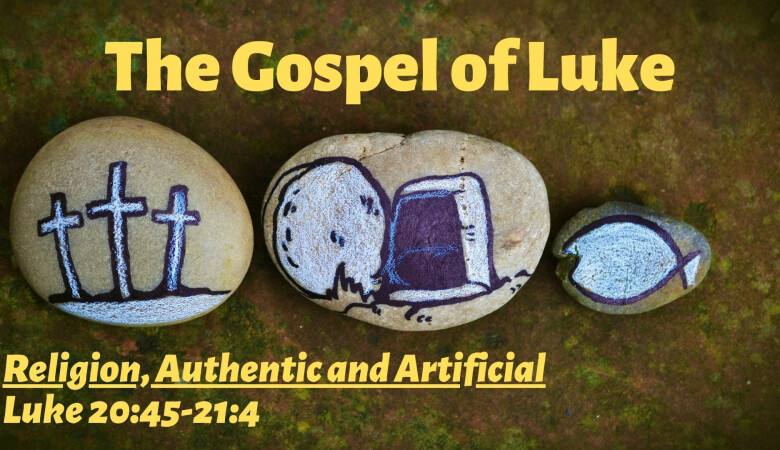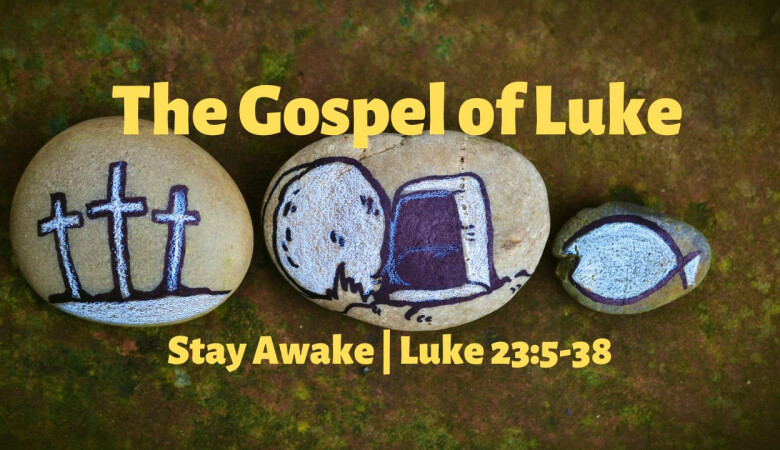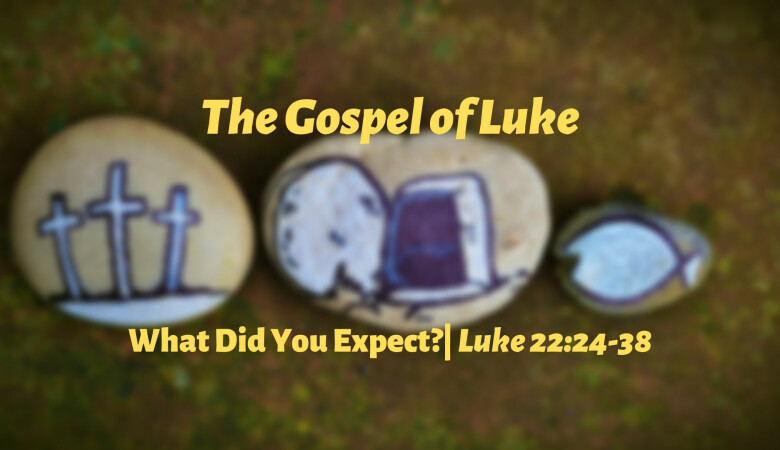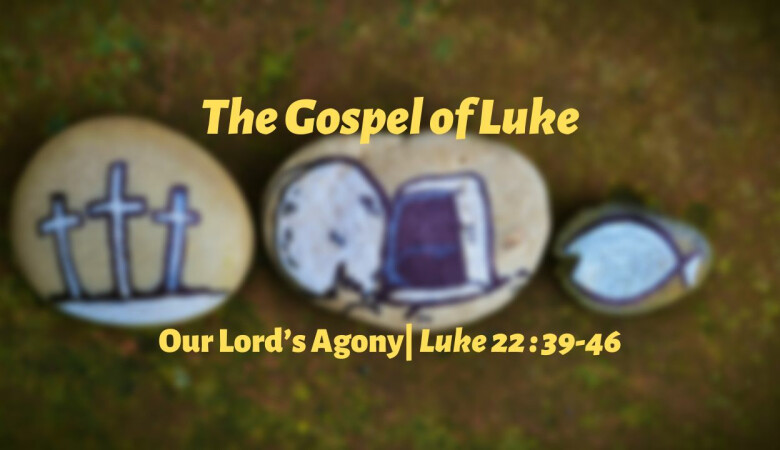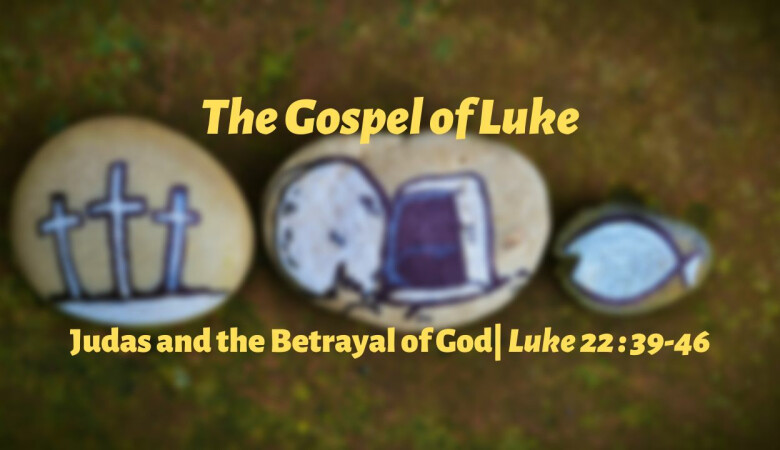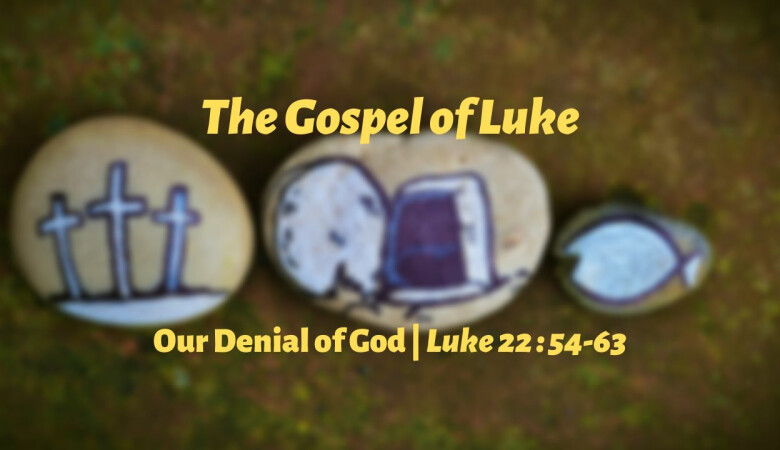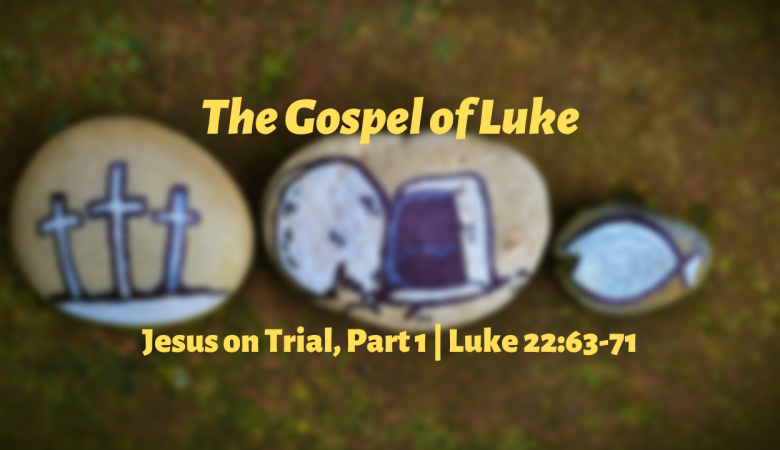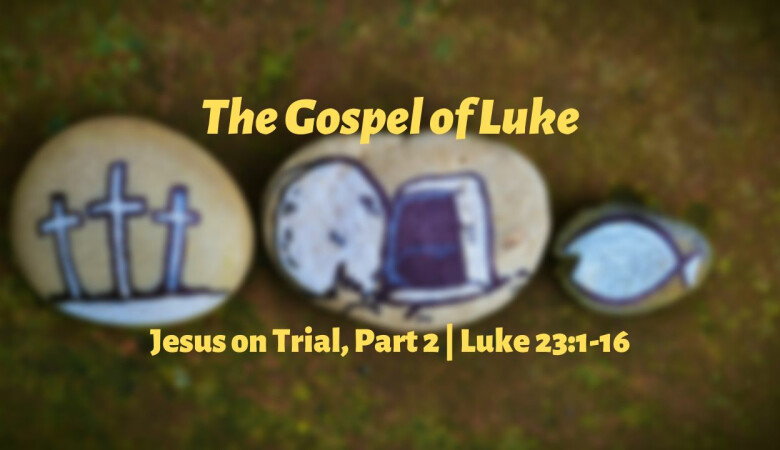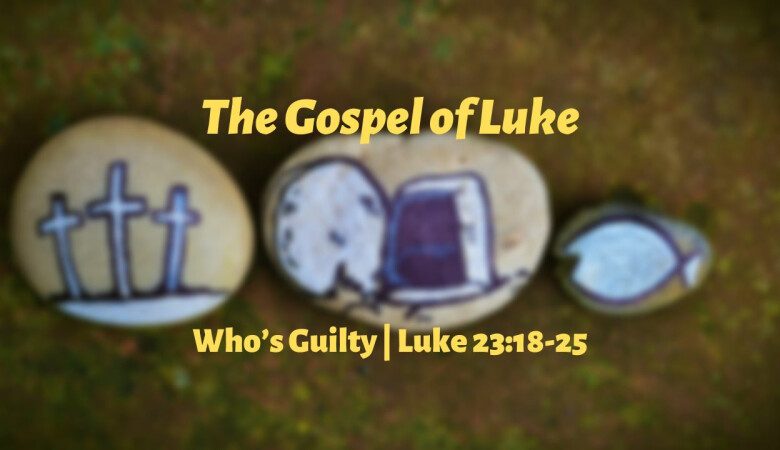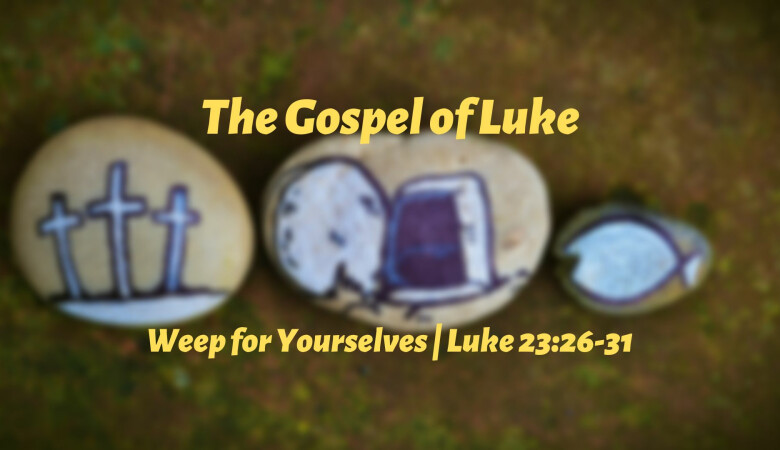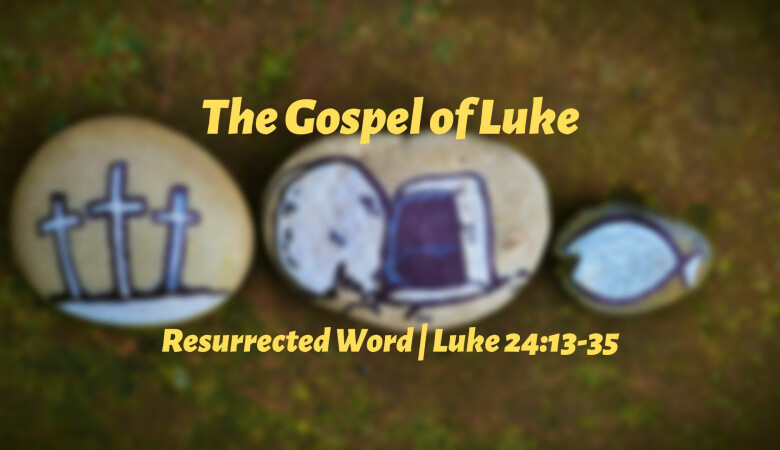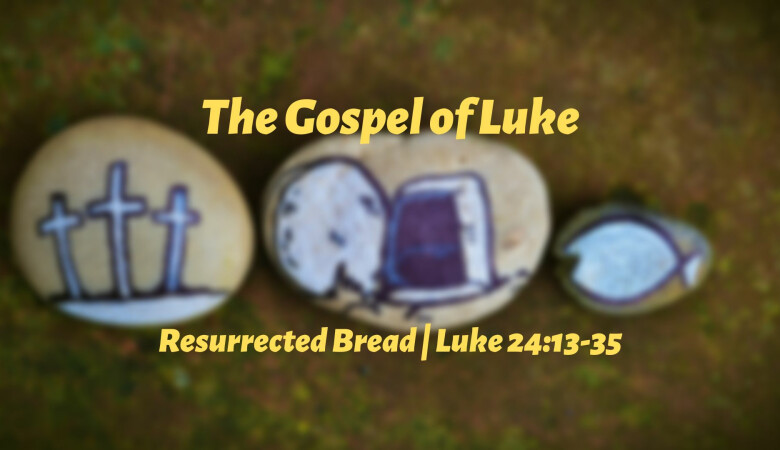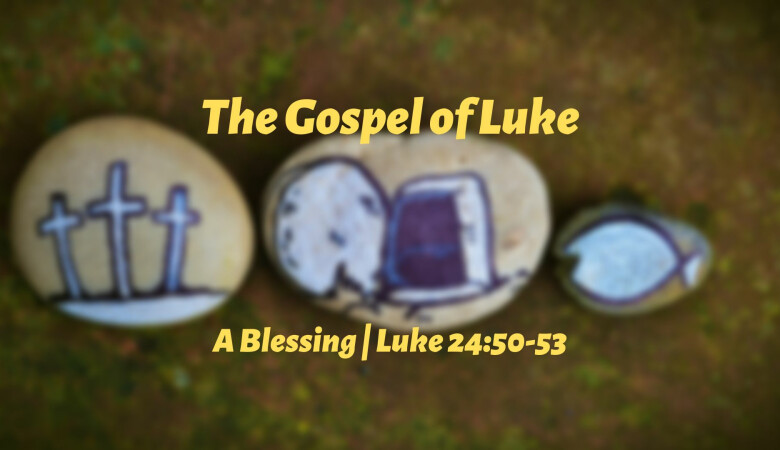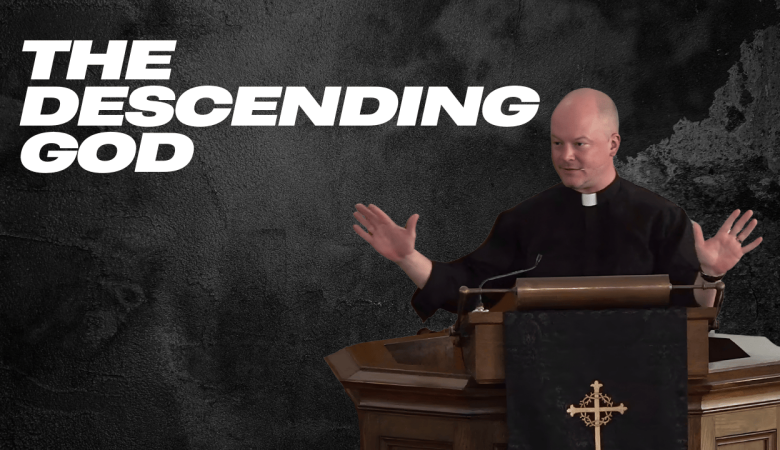Series: Luke
Beginning from Jerusalem
April 21, 2024 | Peter Rowan
Passage: Luke 24:36-49
ALL SERMONS IN SERIES
Summary
After the long Emmaus road resurrection narrative where the Cleopas and his companion have burning hearts for God's Word and their eyes opened by the broken bread of Jesus, Jesus appears to the eleven disciples and he leaves them with a commission that they would take the news of Jesus from Jerusalem with the aid of the Holy Spirit, the "power from on high"! But what news of Jesus are they to take? What is the core of the message that they are to proclaim? Christ's death and his resurrection, his suffering and his glory! And because of that suffering on the cross and because of that glorious resurrection the door is open for repentance and the forgiveness of sins. When Jesus sums up what they are to say he sums it up with suffering and resurrection for the forgiveness of sins and it is to be proclaimed to all people!
Transcript
The Russians, I am told, report that they have not found God in outer space…
C. S. Lewis wrote this in February of 1963, a great year of space exploration and the year he would die. He continues:
Looking for God—or Heaven—by exploring space is like reading or seeing all Shakespeare’s plays in the hope that you will find Shakespeare as one of the characters or Stratford (where Shakespeare lived.) as one of the places. Shakespeare is in one sense present at every moment in every play. But he is never present in the same way as Falstaff or Lady Macbeth. Nor is he diffused through the play like a gas…
Now of course this is only an analogy. I am not suggesting at all that the existence of God is as easily established as the existence of Shakespeare. My point it that, if God does exist, He is related to the universe more as an author is related to a play than as one object in the universe is related to another.
If God created the universe, He created space-time, which is to the universe as the metre is to a poem or the key is to music. To look for Him as one item within the framework which He Himself invented is nonsensical…
How, then, it may be asked, can we either reach or avoid Him?…in our own time and place, [avoiding God] is extremely easy. Avoid silence, avoid solitude, avoid any train of thought that leads off the beaten track. Concentrate on money, sex, status, health and (above all) on your own grievances. Keep the radio on. Live in a crowd. Use plenty of sedation. If you must read books, select them very carefully. But you’d be safer to stick to the papers. You’ll find the advertisements helpful; especially those with a sexy or a snobbish appeal.
About the reaching, I am a far less reliable guide. This is because I never had the experience of looking for God. It was the other way round; He was the hunter (or so it seemed to me) and I was the deer…
Space-travel really has nothing to do with the matter. To some, God is discoverable everywhere; to others, nowhere. Those who do not find Him on earth are unlikely to find Him in space. (Hang it all, we’re in space already; every year we go a huge circular tour in space.) But send a saint up in a spaceship and he’ll find God in space as he found God on earth. Much depends on the seeing eye.
I read you that rather long quote from Lewis because it gets at two things: it gets at our finding God and it gets at our part in the drama of salvation. This is to say, it gets at what God does in salvation and it gets at what God calls us to do with our salvation.
The passage we have this morning is Jesus last words in the gospel of Luke. He comes back, apparently from Emmaus, and they are talking about what they had heard from Cleopas and his companion and Jesus is now right their with them. And probably because that is all a bit startling (all of the sudden someone appearing with you and beyond that someone you had seen die!) he says, “Peace to you!” And he speaks to their fear.
And he speaks to their fear by pointing them to his real body, his flesh and his bones, but also specifically to his hands and his feet. He points them to the in-flesh reality of his suffering. The one you see before you is the one who suffered for you. Then, as he did a number of times in the resurrection stories, he eats some food to show them that he is alive, in the flesh.
But as you take this first part together, what I want you to see is that what God does in our salvation is that he comes among us and he takes on flesh for us and he suffers. “See my hands and my feet.” “See the scars of my suffering.” “Have you anything to eat?” “See that I rose from the dead.”
You see, what we first see in this story is not so much our finding God, but just like Lewis said, his finding us. We first see the incarnate reality of Jesus. God so loving the world that he gives his Son. And we see that this incarnate Jesus is the suffering Jesus.
If we continue on, we see again how it is about God finding us.
44 Then he said to them, “These are my words that I spoke to you while I was still with you, that everything written about me in the Law of Moses and the Prophets and the Psalms must be fulfilled.”
Jesus saying “The Law of Moses and the Prophets and the Psalms” was a classic was for Jews to reference all of the Scriptures. And what he again says to them is that they were all about him.
Which was again a way of saying that it is not so much about us finding God but God finding us. Even the holy book of the Scriptures were not so much about humans writing about God and his ways with them, but about him and him coming for them in their. It’s true. Even at the very beginning this is how it is. With the very first sin in the garden long ago, salvation is about God coming for them calling out “Where are you?” and then clothing them with skin. And this same dynamic happens again and again in the Scriptures: God comes for his people. God finds them and brings them to himself.
So we can see here in this passage that how he interacts with the disciples in the upper room speaks to this truth that God come for them and suffered for them, but also as he teaches them the Scriptures it is also about him coming for them. They are about him.
Then specifically, verse 45-46 say, “45 Then he opened their minds to understand the Scriptures, 46 and said to them, “Thus it is written, that the Christ should suffer and on the third day rise from the dead, 47 and that repentance for the forgiveness of sins should be proclaimed in his name.
He says that you really don’t understand the Scriptures until you understand that the Messiah, the long waited for one should suffer and rise from the dead. And that all of this happens for repentance and the forgiveness of sins.
Again, what is really clear in this passage is that the big thing that Jesus is leaving his disciples with is that it is not so much our finding God but about God finding us. And that in God finding us, the thing we must get is that in order to do this God had to suffer for us and rise to new life for us.
Here’s what Jesus is saying: The work of being reconciled to God is all about what he has done and specifically what he has done in his suffering on the cross and the empty tomb!
Do you ever wonder why Christians make such a big deal about sins and about the cross and about the resurrection? My guess is that you have. My guess is that nearly every singing one of you have at some point in your lives. I think you probably wonder that if you are not a Christian and you probably wonder that occasionally if you are a Christian. I certainly have. Christianity offers so much and the Bible is so rich with content, so why all of the talk of blood all of the time? Why talk about the cross all of the time? How violent! Very seriously, when we lived in Richmond, there was a seminary professor at a local presbyterian seminary who wrote an op-ed piece in the local paper arguing that Christianity should change its primary symbol. She argued that the cross is too violent of a symbol and that Christianity has been hindered by that message connected to that symbol of violence. She instead suggested that the primary symbol of Christianity should be changed to a lactating tit, a symbol of motherly nurture! I kid you not.
But why make such a big deal about sins and suffering and blood? Why? Well, first of all, because Jesus makes a big deal about it himself. If we are to follow Jesus, we should take his lead. I mean, really, here at the end, he says this is what it is all about. When he sums up what he came to do he didn’t mention all of the miracles and all of the great teaching, he says that he suffered and died and rose again and repentance and forgiveness is available to all. He says that if you are to rightly understand the Scriptures and if you are to rightly understand what he came and did, you need to focus on this fact that he is the suffering Christ and that he rose from the dead.
And why that is so important is because of our need for forgiveness. Our sins and the offense that they are to God had to be dealt with. The fact is that human life is fundamentally, primarily, essentially a moral affair. Every human life is measures by whether they do right or wrong. I know, I know, it is common to think that our lives are measured by how famous we become, or by how much money we make and acquire, or by how popular we are, or by how intelligent we are, or by how influential we are, or by how happy we are, or even by how many good things we have done. No, it’s not those. God says again and again that it has to do with whether or not we are good and good as he defines it, good in the sense of obedience to his commandments, good in the sense of loving God and loving our neighbors, good in the senes of honest, sincere, pure, humble, devout. And from the beginning to the very end, God says this is story of human life. And also, from the beginning to the end of the Bible, what we see is a world of misbehavior, unkindness, infidelity, dishonesty, impurity, pride, stinginess, hypocrisy and hatred. It’s true.
And all of this sin, all of this rebellion against God demands death. God should just do away with all of these rebels. But the message of Jesus is that the suffering that he went through on the cross and his death was the atonement for our sins. It is because he dies that we can live.
Now, honestly, if you have asked the question, “Why the cross?” And “Why all of the emphasis on blood?” and those kinds of questions. Well, my guess is that you have also asked “What could something something done by a Jew long long ago in a place far far away have anything to do with my life today? With my sins today?
That’s also a good question. And I think when we ask that question we are very tempted to think that the only answer is “Not much,” that it doesn’t have much to do with our lives today. But let me reframe it for you.
What could something done long ago and far away by the Creator of heaven and earth, who for the salvation of humankind, came into the world, was put to death by his own creatures and then rose from the dead, have to do with me today?
And if you can ask it like that, then the answer you may give is “Probably a whole lot.”
Rather famously, in the early 20th century, The Times of London asked several prominent writers to write on the topic “What’s Wrong with the World?” G.K. Chesterton, the journalist, Christian apologist, poet, and writer of detective fiction, famously supplied the shortest submission. In answer to that question — What’s wrong with the world? — He wrote, simply, “Dear Sirs, I am. Sincerely yours, G.K. Chesterton.”
I would venture that if we had a sense, that if every single one of us, had a sense that our sins demanded the death of the very God who spoke the world into being and that we are the problem, I would venture that our world would actually be a far far more lovely place. That we would be slower to speak and quicker to listen, that we would be more eager to admit that the problems in our marriage are not just about the other person. That we would be attentive to our sloth, to our gluttony and to the ways they hurt others and damage our good world.
I began this sermon saying that I wanted us to see what God does in salvation and then what we do with our salvation. The truth is that in the suffering and resurrection of Jesus God does everything in our salvation. We bring the sin, he brings the righteousness. We bring the confession, he brings the forgiveness.
But then we are the actors. We are the Hamlets and the Henry the V’s. We do show forth the author of our salvation. He invites us into the great drama of salvation. He invites us to be actors on the stage of the world. Starting in Jerusalem and going out to Harrisburg and beyond. Jesus does all of the work of salvation. He accomplishes it and applies it to us. But he also invites us into the story, to be actors in the great drama, to speed the good news and to share in his suffering that we might also share in his glory.
Series Information
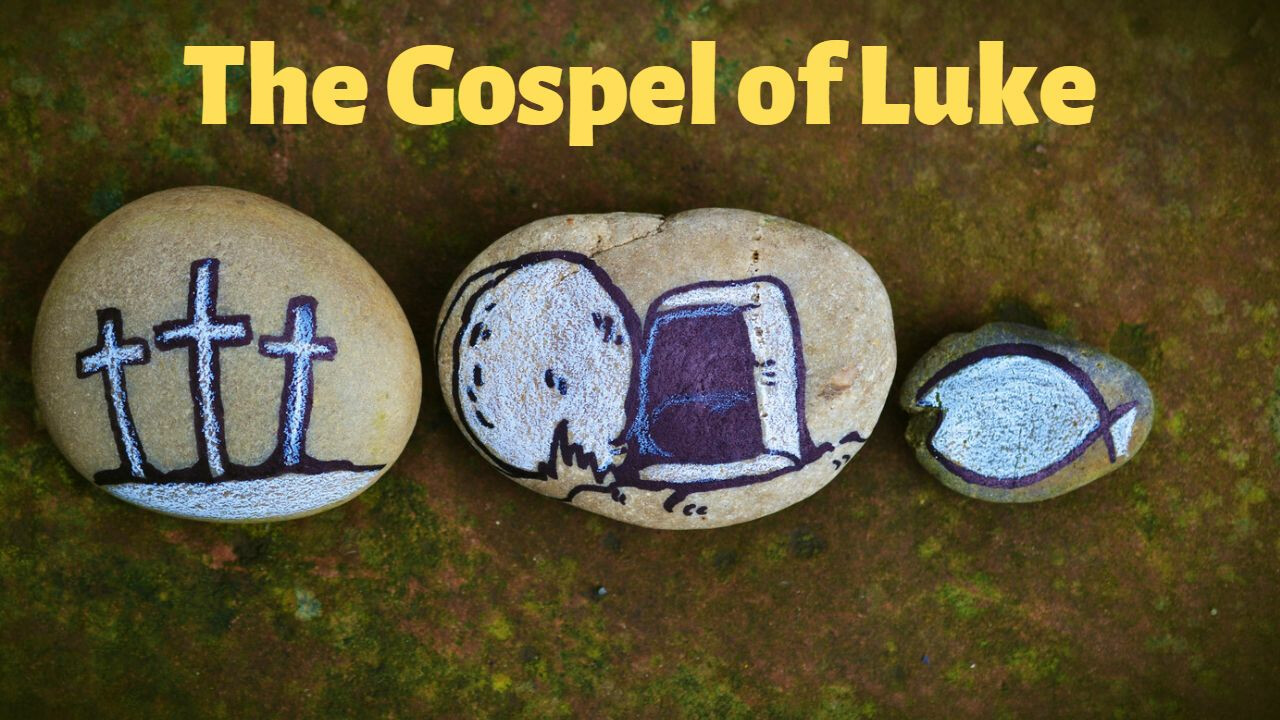
The Gospel of Luke is best described by its author in the first four verses of the book: "Many have undertaken to draw up an account of the things that have been fulfilled among us, just as they were handed down to us by those who from the first were eyewitnesses and servants of the word. With this in mind, since I myself have carefully investigated everything from the beginning, I too decided to write an orderly account for you, most excellent Theophilus, so that you may know the certainty of the things you have been taught."


